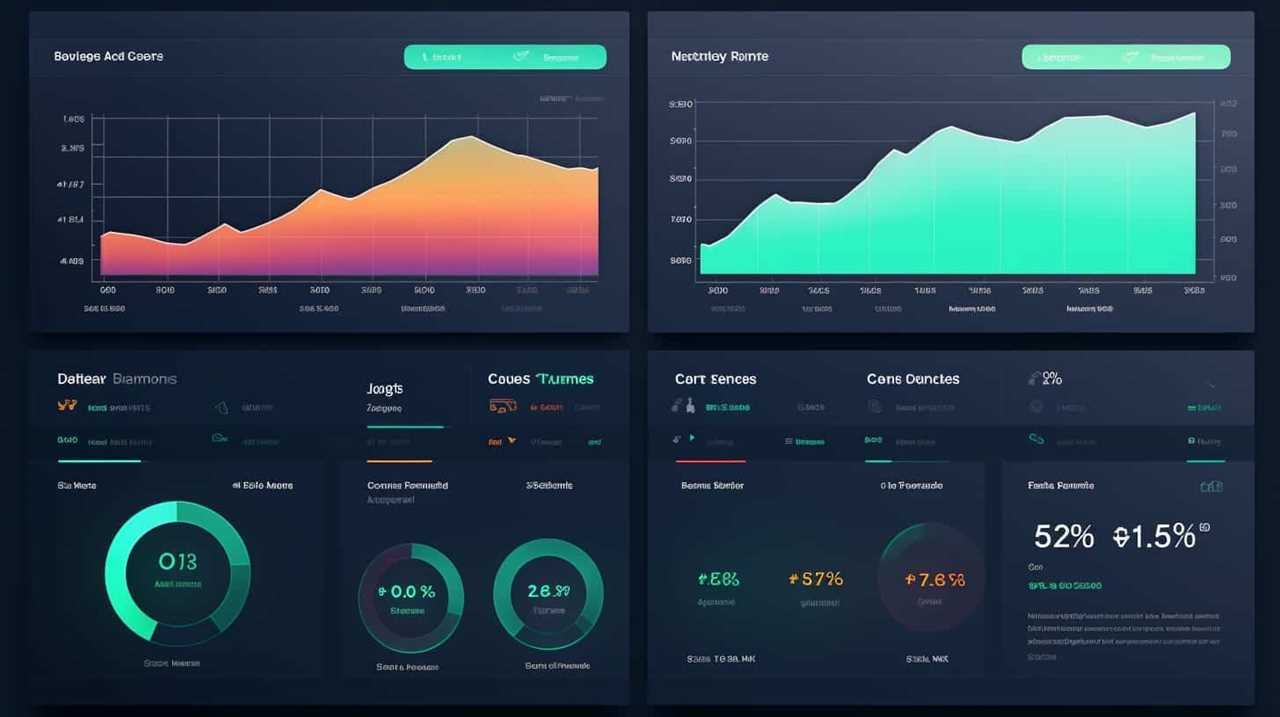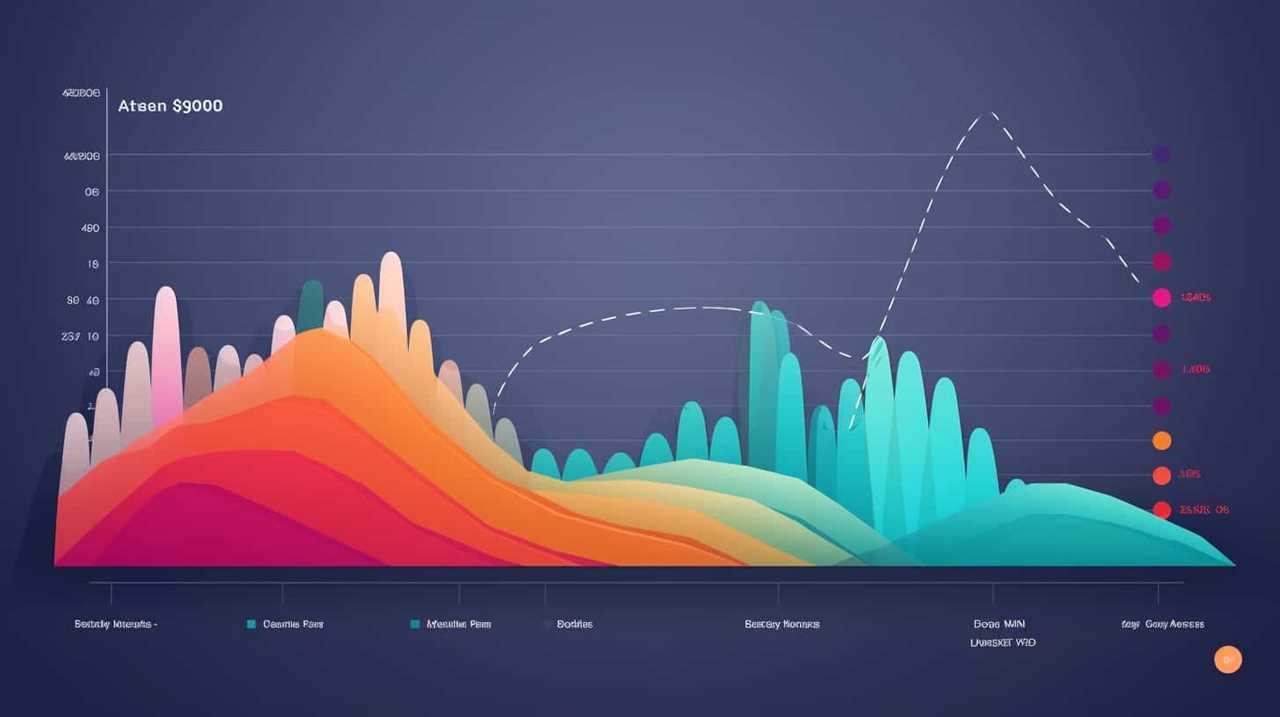We’re gathered to tackle a vital question: Do keywords still hold their significance in the SEO landscape?
Well, here’s a startling statistic for you – over 70% of online experiences start with a search engine. That means nailing your keyword game is crucial for getting noticed.
In this article, we’ll explore the evolution of SEO strategies and how keywords still play a vital role in driving organic traffic.
So, buckle up and get ready to master the art of keyword optimization in the digital age.

Key Takeaways
- Keyword stuffing is no longer effective for high rankings.
- Semantic search and user intent are essential for effective keyword optimization.
- Voice search has changed the way people search for information.
- Balancing keyword optimization with quality content is essential for SEO.
The Evolution of SEO Strategies
We have witnessed an evolution in our SEO strategies. With the constant changes in search algorithms, our approach to optimizing websites has also evolved. Gone are the days when simply stuffing keywords into our content would guarantee high rankings.
The evolution of search algorithms has forced us to adapt and focus on delivering high-quality, relevant content that provides value to users.
Additionally, we’ve recognized the increasingly important role of social media in SEO. Social media platforms now play a crucial role in driving traffic to websites, enhancing brand visibility, and improving search engine rankings.
By incorporating social media into our SEO strategies, we can effectively engage with our target audience, build brand authority, and ultimately improve our website’s visibility in search engine results.

It’s essential to stay updated with the latest trends and continually refine our strategies to ensure our SEO efforts remain effective in this ever-evolving landscape.
The Rise of Voice Search and Its Impact on Keywords
As search algorithms continue to evolve, the rise of voice search has significantly impacted the relevance and usage of keywords in our SEO strategies. Voice search optimization has become crucial in today’s digital landscape, as more and more people rely on voice assistants like Siri, Alexa, and Google Assistant to find information and perform tasks.
With voice search, users are more likely to conduct searches in a conversational, natural language format rather than using short, concise keywords. This shift in search behavior has forced marketers and SEO professionals to adapt their keyword strategies to align with the way people speak and ask questions.
The impact of voice assistants on keywords means that long-tail and conversational keywords are becoming increasingly important for ranking and visibility in search engine results.

To stay ahead in the ever-changing SEO landscape, it’s essential to prioritize voice search optimization and adjust our keyword strategies accordingly.
Understanding Semantic Search and Its Relationship With Keywords
Now let’s talk about the relationship between semantic search and keywords.
While keywords have traditionally played a crucial role in search engine optimization, semantic search has emerged as a game-changer. It goes beyond basic keyword matching and focuses on understanding the intent behind user queries. As a result, the importance of semantic search can’t be overstated, as it allows search engines to provide more accurate and relevant results.
However, this doesn’t mean that keywords are becoming obsolete. Instead, their role is evolving, and they need to be used strategically in conjunction with semantic search techniques.

Keyword Vs. Semantic
Semantic search and its relationship with keywords can be better understood by examining the differences between keyword-based searching and semantic searching.
To grasp the nuances of this topic, consider the following bullet points:
- Keyword-based searching relies on specific words or phrases to retrieve relevant results, while semantic searching focuses on understanding the meaning behind the search query.
- Keyword optimization allows for precise targeting of specific keywords, but can limit the scope of search results.
- Semantic search enables search engines to interpret user intent, leading to more accurate and personalized results.
- Keyword-based optimization requires constant monitoring and adjustment to keep up with changing search trends, while semantic search adapts to evolving user behavior.
Importance of Semantic Search
We can better understand the importance of semantic search by exploring its relationship with keywords.
Semantic search represents the evolution of search algorithms, going beyond the traditional keyword-based approach. It focuses on understanding the context and intent behind a user’s query, rather than solely relying on specific keywords. This shift has been driven by the impact of natural language processing, which allows search engines to understand the meaning and nuances of human language.

By analyzing the relationships between words, phrases, and concepts, semantic search delivers more relevant and accurate search results. This has significant implications for SEO and content creation, as businesses need to optimize their websites for semantic search to ensure their content aligns with user intent.
As we delve into the evolving role of keywords, we’ll see how semantic search has transformed the way we approach search engine optimization.
Evolving Role of Keywords
As we explore the evolving role of keywords, it’s important to understand the relationship between semantic search and keywords. Semantic search refers to the ability of search engines to understand the context and meaning behind search queries, rather than just matching keywords. This shift in search algorithms has been driven by the evolution of search algorithms and the impact of artificial intelligence on keyword optimization.
Here are some key points to consider:

- Semantic search focuses on user intent, delivering more relevant search results.
- Keywords are still important, but they need to be used in a more natural and contextually relevant way.
- Artificial intelligence plays a crucial role in understanding the semantics of search queries and matching them with relevant content.
- Optimizing for semantic search requires a holistic approach, combining keyword research, content optimization, and user-centered design.
How Machine Learning Algorithms Are Changing Keyword Optimization
Let’s talk about how machine learning algorithms are revolutionizing keyword optimization.
With the evolution of keywords in the age of ML, traditional SEO strategies are being challenged.
These algorithms have the ability to understand the context, intent, and relevance of search queries, making it crucial for marketers to adapt their keyword strategies to align with this new landscape.
Keyword Evolution With ML
As machine learning algorithms continue to advance, the evolution of keywords in search engine optimization becomes increasingly apparent. Keyword extraction using ML and ML algorithms for keyword research have revolutionized the way we optimize content for search engines.

Here are some key insights into the keyword evolution with ML:
- Improved accuracy: ML algorithms analyze vast amounts of data to provide more accurate keyword suggestions, resulting in better optimization strategies.
- Semantic relevance: ML algorithms understand the context and intent behind search queries, allowing for the use of more relevant and semantically related keywords.
- User-centric optimization: ML algorithms consider user behavior and preferences, enabling the creation of content that aligns with user needs and preferences.
- Dynamic optimization: ML algorithms continuously learn and adapt, allowing for real-time optimization based on changing search trends.
With the evolution of keywords through ML, SEO strategies have been transformed. Let’s explore the impact of these advancements on SEO strategies in the next section.
Impact on SEO Strategies
Machine learning algorithms have significantly transformed keyword optimization, reshaping SEO strategies. As search algorithms continue to evolve, it’s crucial for businesses to adapt their SEO techniques accordingly.
Traditional keyword optimization strategies focused on targeting specific keywords to rank higher in search engine results. However, with the introduction of machine learning algorithms, search engines now employ more sophisticated methods to understand user intent and context.

This means that SEO strategies must also evolve to align with these changing search algorithms. Instead of just relying on keyword density, businesses now need to focus on creating high-quality, relevant content that satisfies user intent. This includes incorporating natural language, semantic keywords, and optimizing for voice search.
The Role of User Intent in Keyword Research
User intent plays a crucial role in keyword research. Understanding semantic search and the intentions behind users’ search queries is essential for effective keyword optimization.
Here are four reasons why user intent should be a focus in keyword research:
- Relevance: By aligning keywords with user intent, you can ensure that your content addresses the specific needs of your target audience.
- Traffic Quality: Optimizing for user intent helps attract high-quality traffic that’s more likely to convert into leads or customers.
- Competitive Advantage: By understanding user intent, you can uncover valuable keyword opportunities that your competitors may have overlooked.
- Content Optimization: User intent research helps you create content that meets users’ expectations, increasing engagement and improving user experience.
The Importance of Long-Tail Keywords in Modern SEO
After understanding the role of user intent in keyword research, we can now delve into the importance of long-tail keywords in modern SEO.

Long-tail keywords are longer and more specific keyword phrases that users are likely to search for when they’ve a clear intention in mind. While they may have lower search volumes compared to shorter, generic keywords, they often have higher conversion rates due to their specificity.
Long-tail keywords allow businesses to target niche audiences and attract highly qualified traffic to their websites. Through thorough long tail keyword research and optimization, businesses can optimize their content to rank higher in search engine results pages and increase their chances of attracting relevant organic traffic.
In today’s competitive online landscape, incorporating long-tail keywords into your SEO strategy is crucial for driving targeted traffic and boosting conversions.
Balancing Keyword Optimization With Quality Content
When it comes to SEO, striking a balance between keyword optimization and quality content is essential. Effectively incorporating keywords into your content helps search engines understand the relevance of your website to specific search queries. However, focusing solely on keywords can lead to content that lacks substance and fails to engage users.

That’s why the importance of user engagement can’t be overstated. Quality content that provides value to users, answers their questions, and solves their problems is crucial for achieving high rankings and driving organic traffic.
To strike the right balance, consider the following:
- Use keywords naturally throughout your content.
- Prioritize user experience by creating informative and engaging content.
- Aim for a good keyword density without keyword stuffing.
- Regularly analyze user behavior metrics to improve your content’s performance.
By prioritizing both keyword optimization and quality content, you can create a user-centric website that ranks well and keeps visitors coming back for more.
Now, let’s explore the future of keywords in SEO.

The Future of Keywords in SEO
As SEO professionals, we must consider the evolving landscape of keywords and their relevance in the future. With the advancement of technology, such as the impact of AI on keyword optimization, the future of keyword research is bound to change. While keywords will always play a crucial role in SEO, it is important to adapt to the changing search behavior of users. To engage the audience, let’s take a look at the future of keywords in SEO through a table:
| Trends in Keyword Research | Impact on SEO |
|---|---|
| Natural Language Processing | Understand user intent better |
| Voice Search Optimization | Optimize for conversational queries |
| Semantic Search | Focus on context and meaning |
| Long-tail Keywords | Target specific user queries |
Strategies for Effective Keyword Optimization in the Digital Age
To continue our discussion on the future of keywords in SEO, let’s explore strategies that we, as SEO professionals in the digital age, can employ for effective keyword optimization. In today’s digital landscape, user experience plays a crucial role in keyword optimization. Here are some strategies to consider:
- Understand user intent: Analyze the search queries and behavior of your target audience to identify their intent behind the keywords they use.
- Create high-quality, relevant content: Develop comprehensive and informative content that aligns with the keywords and addresses the needs of your users.
- Optimize for mobile search: With the increasing impact of mobile search, ensure that your website is mobile-friendly and optimized for mobile keywords.
- Monitor and adapt: Continuously monitor keyword performance and adapt your strategy based on changes in user behavior and search trends.
Frequently Asked Questions
How Do Keywords Impact Search Engine Rankings?
Keywords impact search engine rankings by determining the relevance and visibility of a website. Through keyword analysis, we can optimize content creation and increase keyword density, positively influencing search engine rankings.
What Are the Benefits of Using Long-Tail Keywords in Seo?
Using long-tail keywords in SEO offers numerous advantages. They lead to more targeted traffic, higher conversion rates, and less competition. To effectively find and target long-tail keywords, we must conduct thorough keyword research and analyze user intent.

How Can Machine Learning Algorithms Improve Keyword Optimization?
Improving keyword targeting and enhancing search engine visibility can be achieved through the use of machine learning algorithms. These algorithms analyze user behavior and search patterns, helping us optimize keywords for better results.
What Role Does User Intent Play in Keyword Research?
User intent is a crucial factor in keyword research. By understanding user behavior and keeping up with SEO trends, we can optimize our keywords to align with what users are searching for, ensuring relevancy and maximizing our online presence.
What Are Some Effective Strategies for Keyword Optimization in the Digital Age?
In the digital age, effective keyword optimization strategies include understanding the impact of semantic search on keyword optimization and staying ahead of the curve with the future of voice search and its implications for keyword strategy.
Conclusion
In conclusion, keywords still hold relevance in the world of SEO, but their role is evolving. With the rise of voice search, semantic search, and machine learning algorithms, the focus is shifting towards understanding user intent and providing quality content.

Long-tail keywords have become increasingly important in driving targeted traffic to websites. It’s crucial to strike a balance between keyword optimization and delivering valuable information to ensure success in the digital age.
As the saying goes, "Keywords are the compass that guides us through the vast landscape of the internet." They help us navigate through the vast landscape of the internet and connect with our target audience, ultimately driving targeted traffic to our websites.









